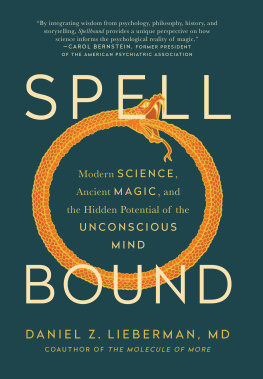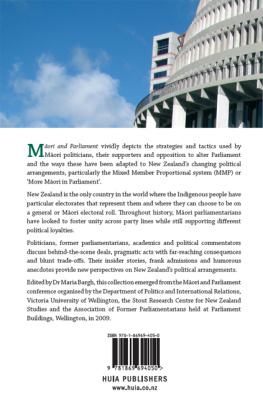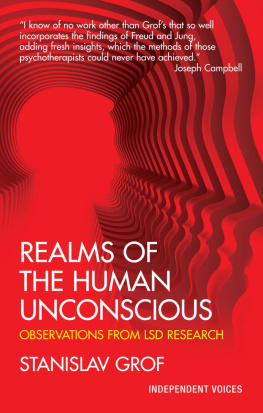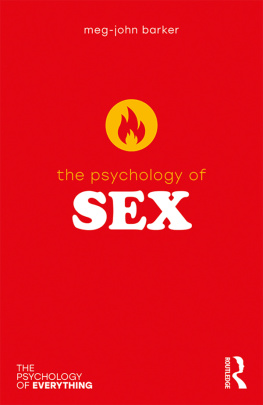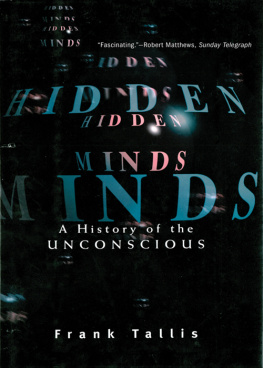Thank you for downloading this Simon & Schuster ebook.
Get a FREE ebook when you join our mailing list. Plus, get updates on new releases, deals, recommended reads, and more from Simon & Schuster. Click below to sign up and see terms and conditions.
CLICK HERE TO SIGN UP
Already a subscriber? Provide your email again so we can register this ebook and send you more of what you like to read. You will continue to receive exclusive offers in your inbox.
We hope you enjoyed reading this Simon & Schuster ebook.
Get a FREE ebook when you join our mailing list. Plus, get updates on new releases, deals, recommended reads, and more from Simon & Schuster. Click below to sign up and see terms and conditions.
CLICK HERE TO SIGN UP
Already a subscriber? Provide your email again so we can register this ebook and send you more of what you like to read. You will continue to receive exclusive offers in your inbox.
To Danielle, my superhero
INTRODUCTION
Lets Do the Time Warp Again
The distinction between past, present, and future is only a stubbornly persistent illusion.
Albert Einstein
In college, I majored in psychology and minored in Led Zeppelin. Or maybe it was the other way around.
This was the mid-1970s, and I was an undergraduate at the University of Illinois in Champaign-Urbana. When I wasnt working at a research lab in the Psychology Department, I spent my time hanging out at the student-run FM radio station, WPGU, where I was the nighttime disc jockey. Spinning records requires more than mere technique, and this was especially true back in the pre-digital, vinyl days. Its an art that involves both intuition and expertise, and it took me quite a few on-air mishaps before I finally felt relaxed in my soundproof, windowed box at the station. To drop a new song in properly, you have to match its rhythm and even its musical key with those of the song youre fading out. Like two people meeting in the doorway of a restaurant as one leaves while the other arrives, the two songs overlap for several seconds, and this creates a pleasing sense of continuity. One of the things I loved most about Led Zeppelin was how the often strange and drawn-out ends to their songs spurred me to be more creative in the transitions I engineered. As Ramble On drifted away with Robert Plants Mah baby, mah baby, mah baby growing softer and softer, I would overlay the thunder and rain that opens the Doors Riders on the Storm.
As a midwestern kid who was just beginning to figure out what he wanted to do with his life, I was drawn to psychology because it promised a future of explanations: why humans did what they did, both good and bad; what the components of our minds were that determined our thoughts and feelings; and, most intriguing of all, how we might use this deepening well of knowledge to reshape ourselves and our world. In contrast, the reason I was so obsessed with music was that it defied explanation. Why did I like the bands that I did? Why did some songs make the hair on my arms stand up or cause me to involuntarily bounce, while others provoked absolute indifference? Why did music have such a powerful effect on my emotions? It spoke to some hidden reservoir of myself that I didnt understand, but which clearly existed and was important. In 1978, after I moved to Ann Arbor, Michigan, to work on my PhD, my advisor, Robert Zajonc, would call me into his office, hold up two museum postcards with modern art paintings on them, then ask me which one I liked better. He did this for maybe four or five sets of paintings. Each time I knew right away which one I liked more, but I always fumbled for the reasons why.
Bob smiled and nodded at my discomfort. Exactly, he said.
Psychologists were starting to realize that there were hidden, underlying mechanisms that guided or even created our thoughts and actions, but we were only just beginning to understand what they were and how they worked. In other words, an important part of what makes us who we are was still beyond explanation, yet it was the source of a key part of our experience.
Around this same time, in the late 1970s, a man named Michael Gazzaniga was driving around New England in a twenty-six-foot GMC motor home. One of the fathers of modern neuroscience, Gazzaniga wasnt just taking a road trip for fun. The purpose of his travels was to visit split-brain patientspeople whod had their corpus callosum, the band of fibers linking the right and left hemispheres of the brain, severed in order to reduce epileptic seizures. Gazzaniga hoped to learn new things about how different regions of the brain interacted. He would pull up in his motor home and seat the patient in front of a visual display that could present some stimuli to his right brain hemisphere and other information to his left hemisphere. Typically the patient was not aware of what was presented to the right side of his or her brain, only what was presented to the left side. In some studies, the researchers would present visual commands such as walk to the right brain hemisphere, and the patient would immediately push his chair back from the computer table and start to leave the testing room. Asked where he was going, hed say something like Going to my house to get a soda. The explanations sounded reasonable but were completely wrong. Gazzaniga was struck by how quickly and easily his patients were able to interpret and give reasonable explanations for behaviors they did not consciously intend or initiate on their own.
The breakthrough insight that Gazzaniga took away from his experiments was that the impulses that drive many of our daily, moment-to-moment behaviors originate in brain processes that are outside of our awareness, even if we are quick to understand them otherwise. We all feel the subjective experience of will, but this feeling is not valid evidence of having willed ourselves to behave a certain way. We can be induced to make movements without willing them, as Dr. Wilder Penfield showed with brain surgery patients at Montreals McGill University in the 1950s. He would stimulate an area of the motor cortex, and the persons arm would move. He would then warn the patient this was going to happen, and the patient would even try to stop it with his left arm, but it moved nonetheless. Conscious will was certainly not necessary for the arm movement; conscious will could not even prevent it. Gazzaniga argued that the conscious mind makes sense of our unconsciously generated behaviors after the fact, creating a positive, plausible narrative about what we are doing and why. Obviously, there is no guarantee that these after-the-fact accounts are accurate. Gazzanigas insight put the Delphic adage Know thyself in a startling new light and raised new questions about the notion of free will.
On any given day, how much of what we say, feel, and do is under our conscious control? More important, how much is not? And most crucial of all: If we understood how our unconscious worked if we knew why we do what we do could we finally, fundamentally know ourselves? Could insights into our hidden drivers unlock different ways of thinking, feeling, and acting? What might this mean for our lives?
Before You Know It examines these questions, as well as dozens of others that are just as complex and urgent. To begin, though, we need to look at why human experience works this way. Once we acquire the right frame for understanding the interplay between the conscious and unconscious operations of our mind, new opportunities open up to us. We can learn to heal wounds, break habits, overcome prejudices, rebuild relationships, and unearth dormant capabilities. This, to invoke two more Led Zeppelin songs, is when transformative possibilities stop being Over the Hills and Far Away and begin to appear In the Light.
Next page


